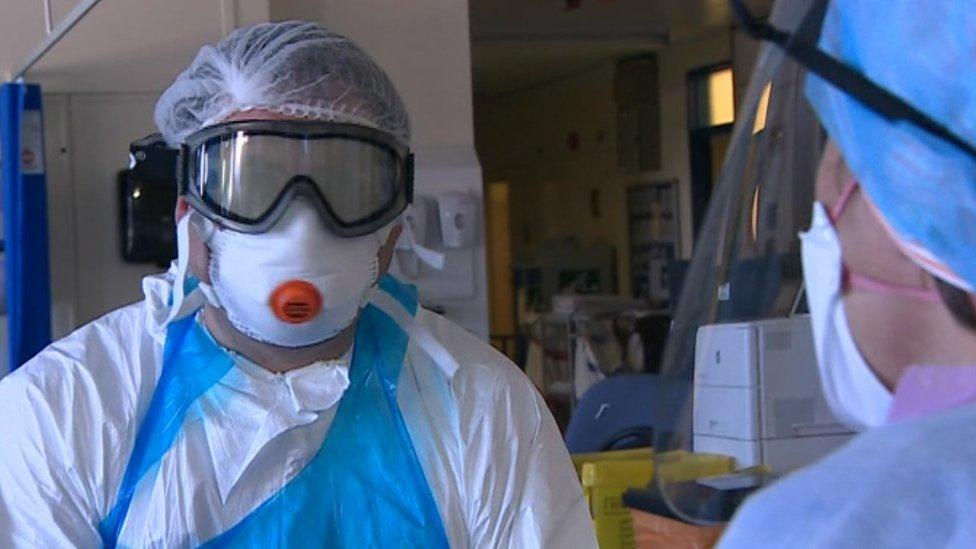Coronavirus: PPE supplies 'stable but fragile'
- Published
- comments
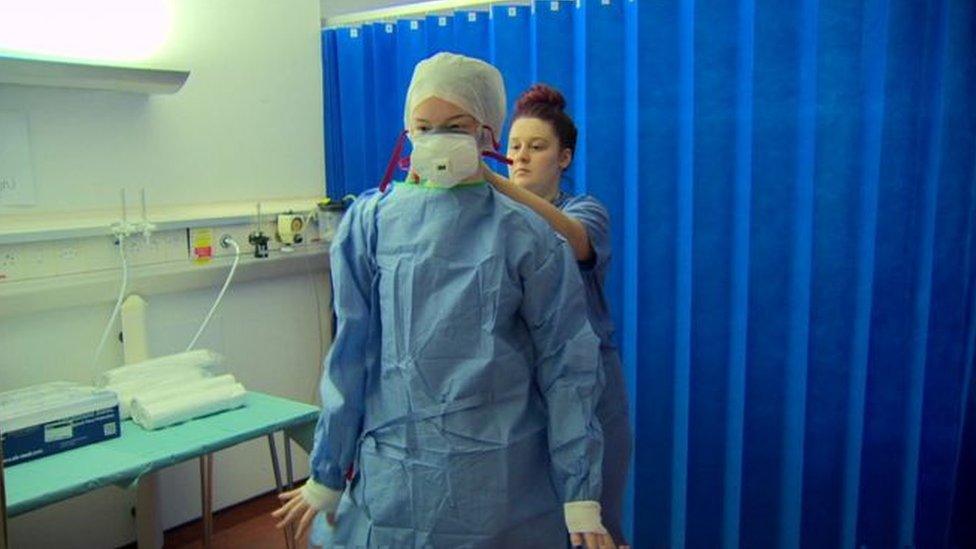
There is "still some work to be done" ahead of a potential second wave, a nursing union says
PPE stocks for nurses and doctors are "stable but fragile", according to the Welsh Government.
There is "enough for the next three months", the deputy minister in charge of PPE supplies said, but warned against taking "our eye off the ball".
With about 90% of Wales' PPE supplies coming from abroad, Lee Waters hopes to encourage more domestic production.
The Royal College of Nursing (RCN) said there was "still some work to be done" ahead of a potential second wave.
"I think the biggest thing out of this is the learning what we need to do so that next time, when there is a peak, we can switch it on very, very quickly," said Nicky Hughes, associate director of nursing at RCN Wales.
She said there were still "some sporadic issues" with getting the right PPE to nurses, but with the number of cases falling "we're not hearing the concerns around PPE that we were".
At the height of the first wave of coronavirus cases, RCN Wales said nursing staff were "dealing with horrifying shortages of equipment".
Ms Hughes said the lack of a "centralised process" had meant supplies were not reaching staff.
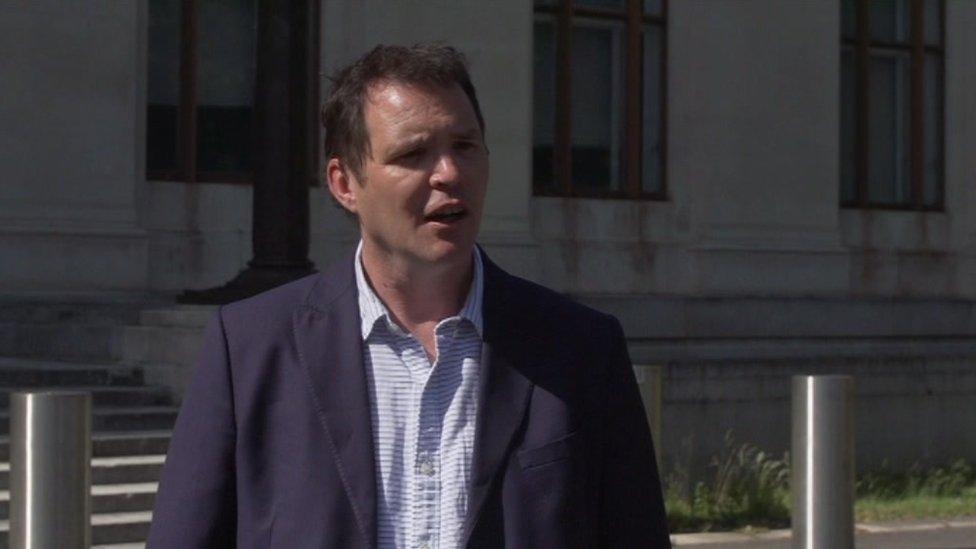
Deputy Economy Minister Lee Waters says there had been some "hairy moments" when there were "just days worth" of supplies left
Deputy Economy Minister Mr Waters acknowledged there had been some issues, but said a "streamlined, efficient distribution system" was now in place.
"It's a very complex situation and, of course, in a crisis there is panic, there is confusion," he added.
"So, when you think about it, we have a central store and we have to get supplies out to every doctors' surgery, every care home, every hospital in Wales - and doing that seamlessly has been difficult."
Despite some "hairy moments" when there were "just days worth" of supplies left, Mr Waters said that "at no point have we run out".
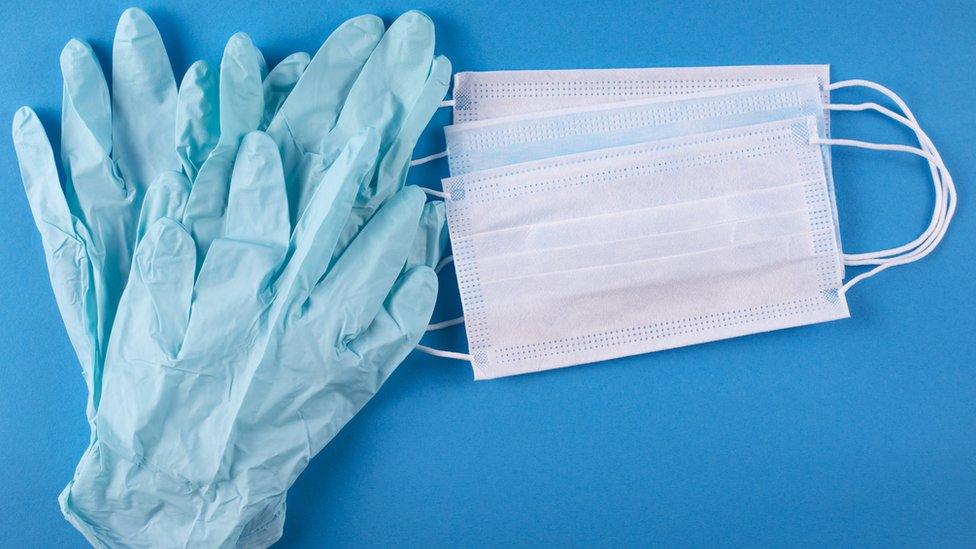
Since the start of March, more than 126 million pieces of PPE have been used in Wales, Welsh Government says
Around 13 million pieces of PPE were being used every week at the start of the pandemic. This had dropped to eight million pieces last week.
Since the start of March, more than 126 million pieces of PPE have been used in Wales, according to the Welsh Government.
A traffic light-coded dashboard system listing supplies of 19 different items of PPE had been "running red or amber down the board" a couple of months ago, he explained, but "now they're all running green".
Asked whether the government is confident it has enough stock and robust enough supply chains if there is a second wave of cases, Mr Waters was cautiously optimistic.
"The system is stable but it is fragile and that's one of the reasons why we're keeping our 'stay at home' messaging in place, and the regulations, because we cannot afford to take our eye off the ball here," he said.
Following a call from the first minister in April to create a "made-in-Wales supply chain for PPE", there are now 50 suppliers across the country.
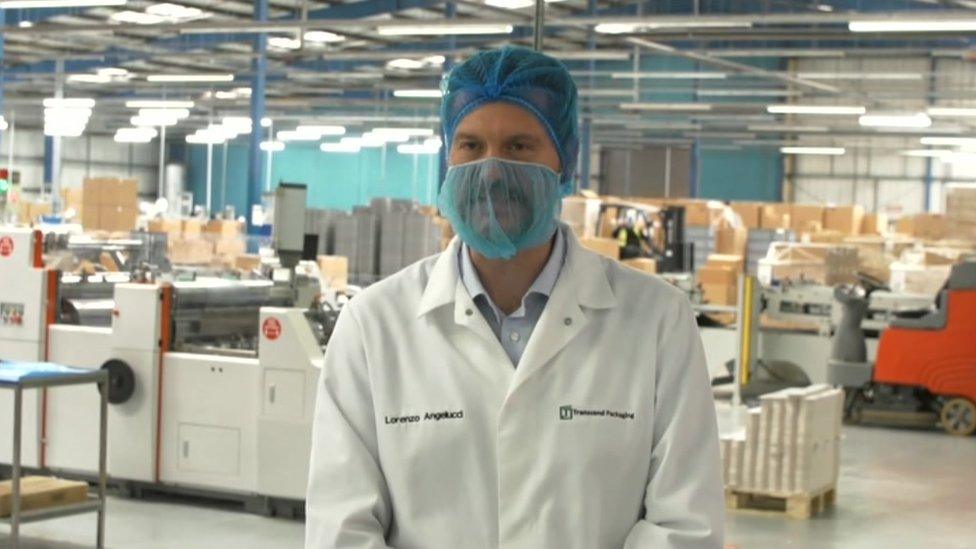
Transcend Packaging chief executive Lorenzo Angelucci says the company had repurposed its operation to produce disposable face shields
Transcend Packaging repurposed its operation to produce disposable face shields.
Chief executive Lorenzo Angelucci said the Caerphilly-based firm was ready to produce PPE long-term.
In Ebbw Vale, the Elite Clothing Solutions social enterprise is producing scrubs for the Welsh NHS.
Wales is now "self-sufficient" in terms of producing scrubs, the Welsh Government claimed.
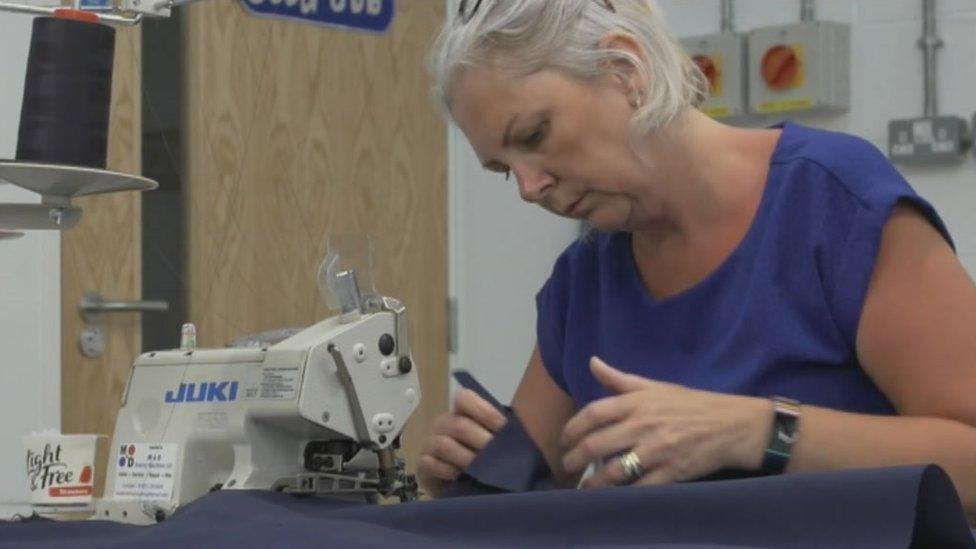
Wales is now "self-sufficient" at producing scrubs, the Welsh Government says
Chief executive Andrea Wayman said Elite, which was set up to help disabled and disadvantaged people, has brought all production staff back to work after being forced to stop production due to a lack of fabric.
"We hope that manufacturing will stay in Wales and not simply be based on imports as we previously experienced," she said.
"We will need this to rejuvenate jobs in our economy."

EASY STEPS: How to keep safe
A SIMPLE GUIDE: What are the symptoms?
GETTING READY: What is the UK's 'delay' phase?
TRAVEL PLANS: What are your rights?
IN-DEPTH: Coronavirus pandemic

- Published14 April 2020

- Published17 May 2020
